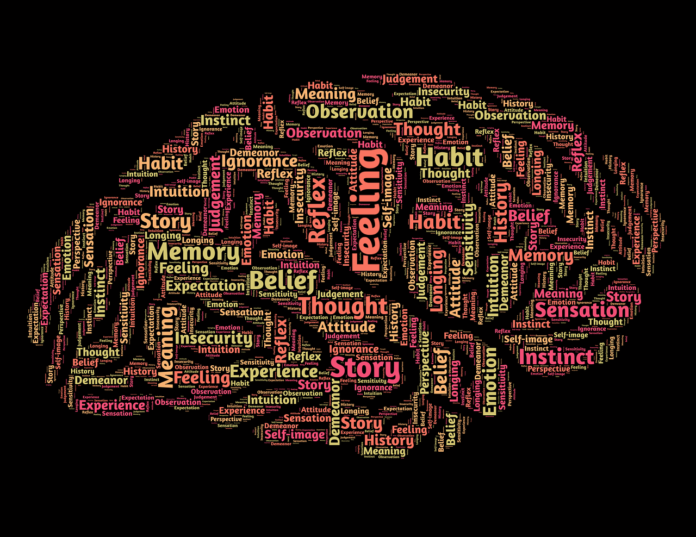By Sally Wu
Consciousness has been defined in various ways by human beings over centuries.
The best definition, from psychology, is by Jonas Salk, the US based biologist, who termed it as intelligent design.
Oscar Wilde used the word “transcendental.” Milton Hershey used “ultrasonic.” T. S. Eliot thought it was a unity of states or essences that transcend the operations of our normal human faculties.
More recently, neuroscientists have argued that we define consciousness in terms of the brain, and therefore that all natural processes and properties are part of a consciousness.
And the name “human consciousness,” found only in the scientific literature, is another misnomer, because we share this Universal consciousness with all other intelligent beings and all other forms of life on the planet.
Consciousness is an inner awareness of a person’s emotions, feelings, sensations and environment.
It is a brief pause when the ordinary order of things and thoughts are suspended for a short time, often extended, for at least the length of a mental cycle, and usually longer.
It is the feeling of being “here, now” in this very world of endless patterns of physical phenomena and relative motion. In poetic terms, consciousness can be guaged, even as science is far behind to guage its expansiveness.
It is the conscious involvement in a world beyond the interior of the mind. It is the illusion of being in two places at once.
It is the awareness that everything we see is real. It is the realization that we are conscious creatures.
Consciousness is present in every living thing and every inanimate object.
Consciousness is not a feeling; it is a perspective, a way of looking at and living in the world.
It is an awareness that we are not alone.

It is a common ground, the one thing that all life, from the bacteria that colonize the surface of the earth to the inanimate asteroids to the creature at the bottom of. the bottom os the oceans are made of.
It is the main ingredient of life.
It is that which makes all things alive, inorganic and biological.
It is what distinguishes life from non-life.
The Western notion of consciousness stems from the Greek philosophy of Aristotle and Thomas Aquinas.
They were steeped in Aristotle’s dialectical materialism, the view that the world is made up of matter in motion. Aristotle questioned whether consciousness is an intrinsic feature of mental states or a higher‐order thought or perception.
This view, by which a mind or body is viewed as an organized form of energy with a purpose (Aristotle’s “mote of dust” or his “center of gravity”) is referred to as “materialism” or “material cause.”
This was the form of materialism which predominates the Western world, particularly in the United States and Europe, when the modern philosophy of science was developed in the nineteenth century.
Materialism is not a philosophical position.
It is a philosophical perception of physical reality which is based on scientific observations, often by means of experiment and measurement, as well as experience.
For instance, the only thing that distinguishes a “soul” from a “mind” or “thought” is consciousness, and without consciousness there is nothing to distinguish the soul from the mind.
Aristotle’s believed that God, if he exists, made the world out of nothing but thought and breath. Consciousness is present in all living and non living beings at certain degrees.
For instance, a dog or a cat is more conscious than a tree. Everything in the world including all atoms and beings are conscious at some level.
One clear point in western philosophy which points to the nature of the mind is the assumption of a physical form for the mind.
In our western philosophy, which is based on this assumption, the mind must be physicalized in order to be of any relevance to understanding the natural world.
Mind and Matter

Materialism describes the world as an organized, immutable form of energy (Molecular Mass); something that we cannot separate from other things or form apart from them. Thus mind and consciousness are forms of energy.
They are not separate but are joined to everything in the world. These mind-matter dualisms are the central components of our western materialistic perception of the world.
For instance, if we consider the natural world to be made up of matter and energy in motion, then all matter is identified as moving, and all energy as somehow internal to the matter in motion.
In this view, the mind must be considered to be an energy form. In the many forms of materialism and dualism which exist in our western understanding of the world, the mind-matter dualism has both causal and epistemological implications.
Conceptually, the dualism of mind and matter assumes that the world is made up of “thought and matter” or materialism, which can be thought of as an invisible, internalized, permeating mind which exists “inside” all things.
While the dualism of matter and energy has causal implications, or a way of thinking about the physical world.
The Dualism of Mind and Matter

The Dualism of Matter and Energy is more intuitively identifiable, and has metaphysical consequences.
While all matter is in some sense material, materialism says that material is only the physical stuff we see, touch, and have had contact with.
The energy, being non-material, is in some sense “outside” the physical matter.
In our western worldview, the energy is something existing on a plane which is “above” physical material objects, so that matter can be defined as an object with an “energy shape.”
In other words, in our western understanding of the world, the energy or energy life itself is more important than the living beings made of the energy.
The metaphysics of the dualism of energy and matter can be identified with the physicalism or materialism of our western world.
While there is an occasional science writer who chooses to use the word “psyche,” the word has little, if anything, to do with the western materialistic mind-body dualism.
While scientific research continues since centuries over what is consciousness and how to quantify it, metaphysicists already have a wide variety of theories. However, the human kind still awaits a formula which can define and calculate the workings of the universal consciousness or the mind, as we call it.
(The author is a digital marketer and blogger with Startupanz.com)












